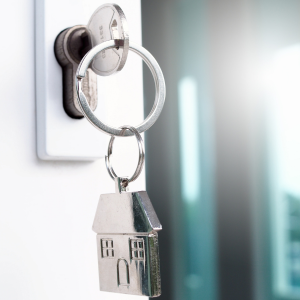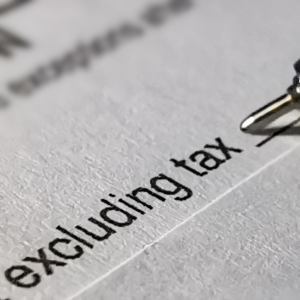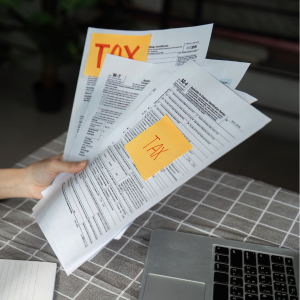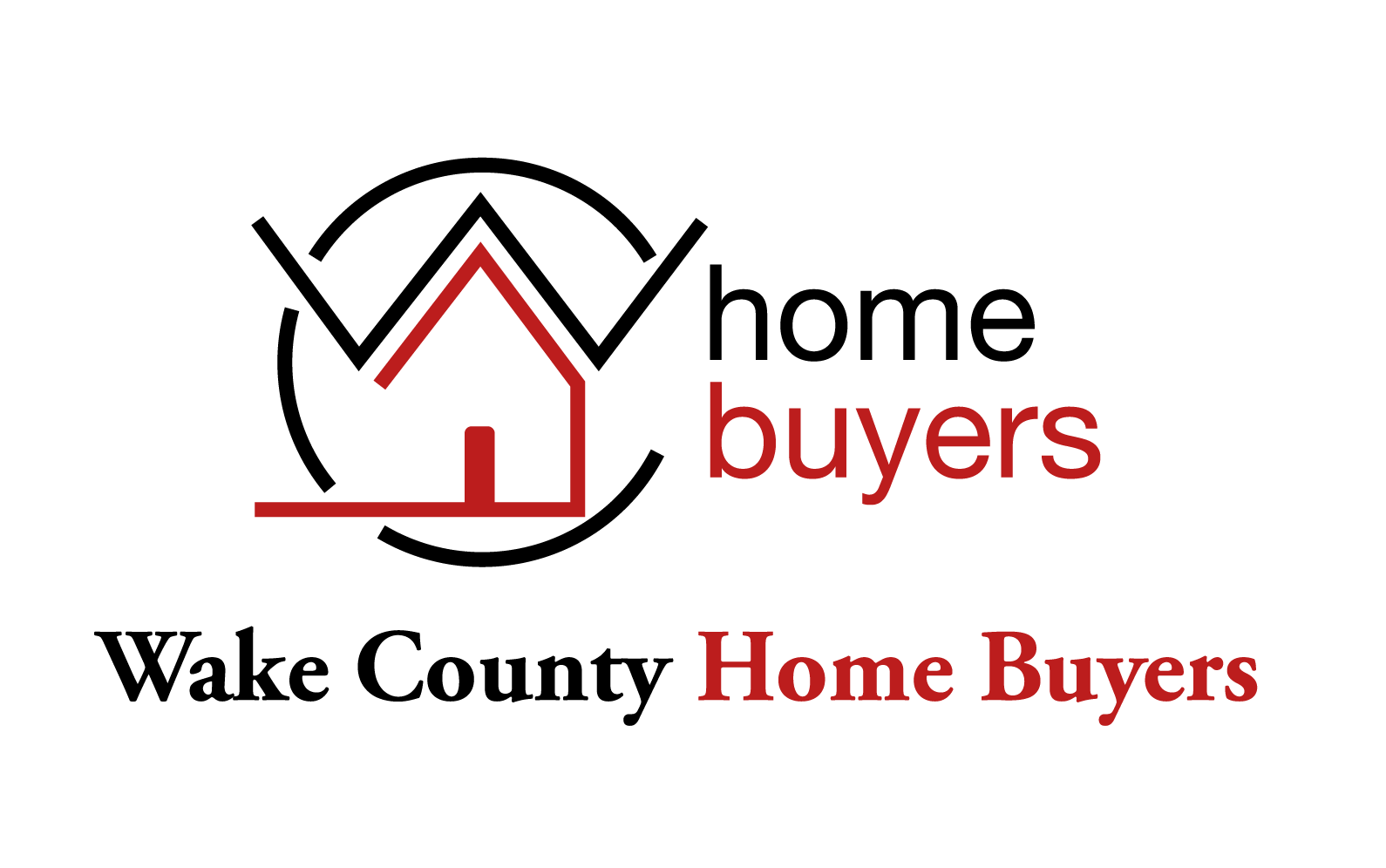
Selling a Home in Raleigh, NC: Navigating Capital Gains Tax
It can be exciting and profitable to sell a house in Raleigh, North Carolina. Because the city is known as one of the best places to live in the Southeast and its economy is growing, the real estate market is also booming. When people sell their homes, they often make a lot of money. But there is a big tax to think about when you make those profits: capital gains tax.
If you’re preparing to sell your house in Raleigh, understanding how capital gains tax works — and what exemptions or strategies are available — is essential. Without a clear plan, you could end up paying far more in taxes than necessary. With the right knowledge, however, you can structure your sale in a way that keeps more money in your pocket.
This comprehensive guide will walk you through the main residence exclusion, break down North Carolina’s capital gains tax rules, and provide Raleigh homeowners with personalized tax planning tips. Whether you’re a first-time seller or an experienced homeowner, this article will give you the knowledge and confidence you need to sell your house fast in Raleigh while minimizing your tax burden.
Key Highlights
- Capital gains tax applies to profits made when selling your home in Raleigh, NC.
- The residence exclusion can allow up to $500,000 in tax-free profit for married couples.
- Long-term capital gains rates, which are lower than ordinary income rates, apply if you’ve owned your property for more than one year.
- To qualify for the exclusion, your home must have been your primary residence for at least two of the last five years.
- Consulting with a local tax professional can help you optimize your financial return.
Understanding Capital Gains Tax
When selling a home in Raleigh, the first step is to understand what capital gains tax actually is. Simply put, it’s the tax you owe on the profit you make from selling an asset — in this case, your house.
For example, if you bought a home in North Hills for $300,000 and later sold it for $500,000, your profit (before deductions and adjustments) would be $200,000. That $200,000 is considered a capital gain, and the IRS (along with the state of North Carolina) wants its share.
The good news is that not all of those profits are necessarily taxable. Depending on how long you’ve owned the property, how you’ve used it, and whether it qualifies as your primary residence, you may be able to reduce or even eliminate much of your tax liability.
In short: understanding capital gains tax is about knowing how ownership duration and IRS exemptions apply to your situation.
What Are Capital Gains and How Are They Taxed?

Capital gains are the profits you make when selling an asset for more than you originally paid. For Raleigh homeowners, this means the difference between your home’s purchase price plus improvements and the eventual selling price.
There are two main categories of capital gains:
- Short-term capital gains: If you’ve kept the property for less than a year, you can claim these. They are taxed at the same rate as your other income, which, based on how much you make, could be quite high.
- Long-term capital gains: If you’ve kept the property for more than a year, you’ll be taxed on your gains at long-term rates, which are much lower than regular income rates.
This distinction makes a big difference. For example, selling after 13 months of ownership rather than 11 months could reduce your tax rate considerably. Timing matters.
Another important factor is the residence exclusion, which allows you to exclude up to $250,000 (single filer) or $500,000 (married filing jointly) of gains from taxation if you meet certain requirements. For Raleigh homeowners who have lived in their property for several years, this can eliminate most or all of their taxable gain.
By carefully planning the sale and documenting your cost basis (purchase price plus renovations, upgrades, or certain selling expenses), you can minimize the taxable portion of your profit.
Factors Affecting Capital Gains on Your Home
Several factors determine how much of your home sale profit will be taxed. Raleigh homeowners should pay close attention to the following:
- Length of ownership – Properties held for more than a year qualify for long-term capital gains treatment.
- Primary residence exclusion – Living in the home for at least two of the past five years allows you to exclude a large portion of your gains.
- Improvements and renovations – Documented upgrades (new roof, kitchen remodel, HVAC replacement) increase your cost basis, lowering your taxable gain.
- Market dynamics – Raleigh’s housing market is hot. In neighborhoods like Five Points or Brier Creek, rising demand can inflate sale prices, which in turn increases your gain.
- Timing – Selling during peak market conditions can maximize profit, but may also increase tax liability if not planned strategically.
The key takeaway: by tracking your property improvements and being mindful of your residency requirements, you can significantly reduce how much of your profit is subject to capital gains tax.
North Carolina’s Tax Policies for Homeowners
On top of federal taxes, Raleigh homeowners must also navigate North Carolina’s state tax system. Unlike some states that treat capital gains separately, North Carolina taxes capital gains as ordinary income.
This means any taxable profit from your home sale will be added to your state taxable income and taxed at North Carolina’s flat income tax rate. As of recent years, this rate has hovered between 4.75%–4.99%, but it’s subject to change.
For homeowners and investor home buyers in North Carolina, understanding both the federal and state layers of taxation is essential when planning a property sale. Knowing how North Carolina’s income tax interacts with federal exclusions can help you structure your sale strategically and avoid costly surprises when tax season arrives.
Key Tax Considerations for Property Owners
If you own property in Raleigh, you need to be aware of several important tax considerations:
- Residence exclusion eligibility – As mentioned earlier, the exclusion of $250,000/$500,000 can dramatically lower your liability.
- Property taxes – Wake County property tax rates affect your annual costs and can influence your overall financial planning.
- Recordkeeping – Keep receipts for all renovations and upgrades, as they increase your cost basis and reduce your taxable gain.
- Retirement incentives – North Carolina offers certain property tax breaks for seniors, which can benefit long-time homeowners.
By maintaining careful records and staying informed about Raleigh’s real estate trends, you can strategically position yourself to pay less tax when selling.
North Carolina Specific Regulations on Capital Gains
North Carolina generally follows federal rules on how capital gains are classified, but there are nuances. Here are some state-specific points:
- Flat income tax rate – Unlike federal taxes, which use a tiered system, North Carolina applies a flat tax rate to all income, including capital gains.
- Property improvements – The state allows homeowners to increase their basis with documented home improvements, which can reduce taxable gain.
- Primary residence exclusion compliance – North Carolina honors federal exclusions, but you must provide proper documentation to qualify.
Because of these rules, keeping thorough records of both ownership and improvements is crucial. Raleigh homeowners should also stay aware of local market trends, since rising values in popular neighborhoods directly affect capital gains calculations.
Primary Residence Exclusion Benefits

The primary residence exclusion is one of the most powerful tools available to homeowners in Raleigh. It can eliminate a substantial amount of taxable profit, making it a cornerstone of tax planning for home sales.
Here’s how it works:
- Single homeowners – Can exclude up to $250,000 in gains.
- Married couples filing jointly – Can exclude up to $500,000 in gains.
This exclusion applies only to your primary residence, not rental properties or vacation homes. With Raleigh’s home prices climbing steadily, this exclusion often wipes out most, if not all, of a homeowner’s taxable gain.
For example, if you bought a home in downtown Raleigh for $350,000 and sold it for $600,000 after living there for three years, your $250,000 gain would be fully excluded if you’re single — meaning zero capital gains tax owed.
How Primary Residence Exclusion Reduces Tax Liability
The primary residence exclusion directly lowers your taxable income by subtracting gains before taxes are calculated. This makes it one of the most effective tax reduction strategies available to homeowners.
In Raleigh’s hot housing market, where home values often rise quickly, this exclusion becomes even more valuable. For many homeowners, it’s the difference between owing thousands in taxes and owing nothing at all.
Because it applies only to your main residence, it encourages long-term homeownership and provides financial relief for those who’ve invested in their communities.
Eligibility Criteria for Residence Exclusion
To qualify for the exclusion, you must meet three tests:
- Ownership test – You must have owned the home for at least two of the past five years.
- Use test – You must have lived in the home as your primary residence for at least two of the past five years.
- Frequency test – You cannot have used the exclusion on another home sale within the past two years.
These requirements ensure the benefit is reserved for genuine homeowners rather than frequent investors. Raleigh residents planning to sell should check their timelines carefully to avoid disqualification.

Effective Tax Planning for Home Sales
Good tax planning can save Raleigh homeowners tens of thousands of dollars when selling. By combining IRS exclusions, careful recordkeeping, and smart timing, you can maximize your profit.
Strategies to Minimize Capital Gains Tax
- Leverage the residence exclusion – Take full advantage of the $250,000/$500,000 exclusion.
- Increase your basis – Keep records of renovations (new windows, additions, landscaping). These expenses increase your home’s cost basis and reduce taxable gain.
- Time your sale – Selling after at least one year of ownership ensures long-term capital gains rates apply.
- Consider reinvestment strategies – In some cases, reinvesting proceeds into other properties under IRS rules can defer taxes.
- Work with professionals – Local tax advisors understand North Carolina’s tax codes and can tailor strategies to your situation.
Understanding Sale Proceeds and Tax Implications
When selling your Raleigh home, don’t confuse the gross sale price with taxable profit. After deducting your cost basis, exclusions, and selling expenses, only the net gain is subject to tax.
For example, if you sell a home for $500,000 that you purchased for $350,000 and spent $25,000 improving, your taxable gain isn’t $150,000 but $125,000. Subtracting exclusions may reduce this even further.
Understanding these numbers is crucial, especially if your home sale pushes you into a higher income tax bracket. Raleigh homeowners should run calculations before selling to avoid surprises during tax season.
Conclusion
Selling a house in Raleigh, NC, is an incredible opportunity to benefit from a strong and growing housing market. But with that opportunity comes the responsibility of managing capital gains tax.
By understanding the rules, leveraging the primary residence exclusion, and planning your sale carefully, you can minimize your tax liability and maximize your profit. Partnering with a knowledgeable tax professional ensures you stay compliant with both federal and North Carolina tax laws while keeping more of your hard-earned money.
With the right tax strategy, selling your home can go from stressful to smart! Wake County Home Buyers buys houses “as is” for cash — reach out today to learn more and see how easy it can be.
FAQs
What is capital gains tax when selling a home in Raleigh, NC?
It’s the tax on the profit made when selling your home. If your home sells for more than you paid (plus improvements), the difference is considered taxable gain.
What is the residence exclusion available for homeowners?
It allows homeowners to exclude up to $250,000 (single) or $500,000 (married filing jointly) from taxable gains, provided the home was a primary residence for at least two of the last five years.
How can Raleigh homeowners minimize their capital gains tax?
By leveraging the residence exclusion, tracking home improvements to increase their cost basis, and consulting with tax professionals for strategies tailored to North Carolina law.
What are the eligibility requirements for the primary residence exclusion?
You must meet the ownership, use, and frequency tests: owning and living in the home for at least two of the last five years, and not claiming the exclusion on another property in the past two years.
What factors influence capital gains tax liability in Raleigh?
Key factors include how long you’ve owned the property, whether it was your primary residence, improvements made, and local market conditions that affect your selling price.
Helpful Raleigh Blog Articles
- Tenant Damage To Property in Raleigh, NC
- How To Successfully Sell Home With Title Issue in Raleigh, NC
- Fixing Up a House to Sell in Raleigh, NC
- Refinance a House After Divorce in Raleigh, NC
- Optimal Season For Selling Your Home In Raleigh, NC
- Selling A House To A Family Member in Raleigh, NC
- How Long Does An Eviction Process Take in Raleigh, NC
- Capital Gains Tax After Selling A House in Raleigh, NC
- Can You Sell a House As Is Without Inspection in Raleigh, NC
- How Much Equity Do I Need to Sell My House in Raleigh, NC

